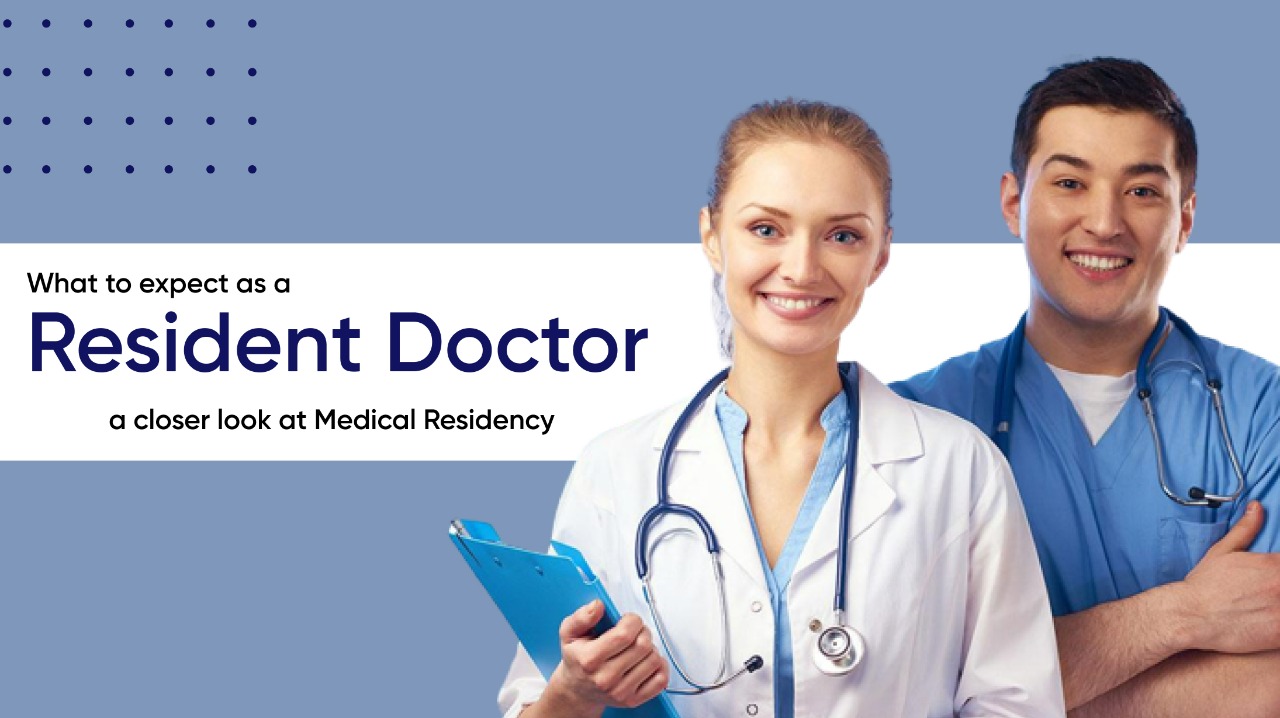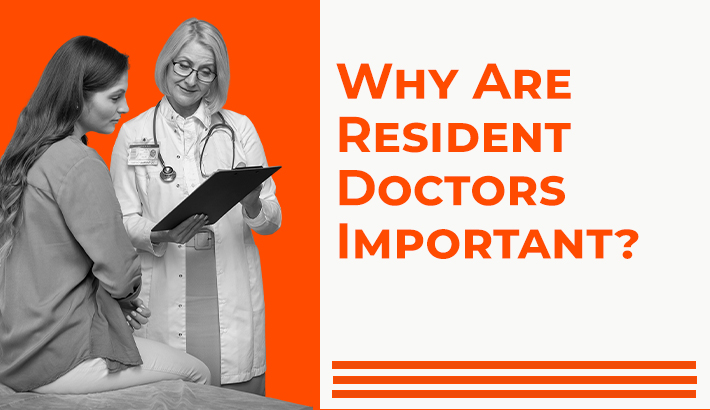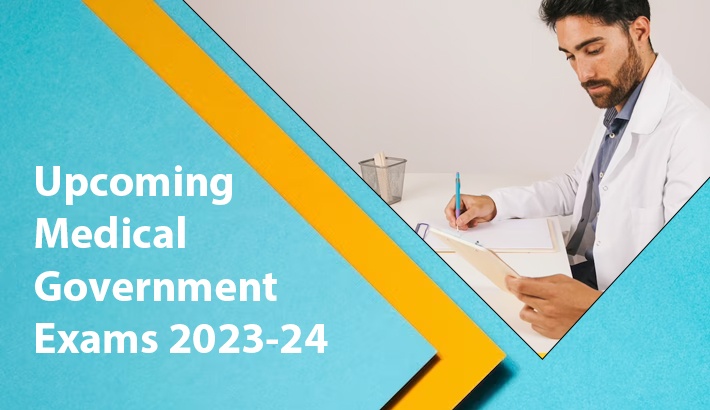There are many steps along the path to becoming a practising doctor. One must undertake a medical residency after earning a Doctor of Medicine (MD) or MBBS degree as a prospective doctor. After applying to multiple residences in medicine, they should practice; after interviewing with several of those programs. And after creating a rank-order list of preferred residency programs.
The IndianRDA medical portal is an organization that aims to bring together MBBS and postgraduate doctors in India. They have job opportunities for medical graduates and postgraduates all over India. This portal brings all medicos together in one group and plans some beneficial healthcare and other guidance for India's citizens.
Residency in a Medical School
Medical residency programs take place in a clinic or hospital and allow medical school graduates to hone their skills further in the clinical skills required to practice independently. Residents develop their skills in patient care, laboratory work, medical procedures, and other techniques they will need to succeed as a physician.
What to Expect as a Resident Doctor?
A medical residency is the period of training that you undertake after completing your studies at medical school. An MD residency takes place in a working hospital or a clinic and provides in-depth, hands-on training within a specialized field of medicine.
The first year of residency, known as an internship, is spent rotating through different specialities or rotating to other areas within one thing. This rotation allows MDs to find a role they want to specialize in for the remainder of their residency and into a career.
Medical Residency difficulty level and responsibilities
The first year of your medical residency is called an internship. During this period, you will spend time rotating through different specialities or rotating to other areas within one primary thing to help you gain vital skills, experience, and mentorship. This internship is also designed to allow recently qualified MDs to expand their knowledge of medical specialities and determine which area is right for them.
One can expect to work in several specialities, including ER, general surgery, orthopaedics, paediatrics, and OB/GYN. After the first year of your medical residency ends, you will be expected to spend more time in your chosen specialized field. During the internship and following residency, they are expected to continue their studies at home. Finding a good balance between hands-on and mentored study in your placement and home study is vital.
Duties of Resident Doctor
1. Performing continuous assessments of patients' conditions
2. Analyzing patient histories and performing physical examinations
3. Assisting doctors on their daily rounds
4. Taking notes, creating reports, and drafting discharge summaries
5. Ordering tests and medications
6. Dealing with patients and their families, communicating with them clearly about the illness, and informing them of the treatment plan.
Medical Residency Hours
Residency training is intensive and complex, as you will be working long hours, an average of 80 hours per week. One can expect to have frequent 24-hour shifts and longer-than-eight-hour shifts on other days. You will be expected to apply your classroom and clinical knowledge in real-time. It's also common for residents in training to continue studying even during their time off.
It's important to remember to take care of oneself first before you can take care of others. The intensity of the residency program can lead to burnout and depression, so balancing study time and personal life should be a priority.
An Ideal Resident Doctor Should Possess the Following Qualities
1. Be professional
Remember that as a doctor, you often see people in pain, struggling, and at the wrong time in their lives. Residency is often the first job for newly qualified MDs, and you must remain professional, even during challenging moments.
2. Keep learning
It's essential to keep growing and learning as a physician. Make sure you seek out learning opportunities and take the time to continue your studies in your own time to balance out the practical skills you are learning on the job.
3. Stay motivated
Moving onwards into a residency program can change the pace for recently qualified doctors. One will no longer be graded on one's educational achievements. But they will still receive feedback on their work based on becoming a better doctor rather than an academic grade.
4. Connect with a community
Remember that you're not alone. Other interns, residents, and doctors can help you along your path and provide teaching moments, support, and mentorship.
5. Personal Care
It's essential to look after the individual's physical and mental well-being during the internship and the following residency. Looking after diet, sleep, hygiene, and daily exercise can keep one in a positive mind and prevent burnout.
6. Attention to detail
Medical science is a highly detail-oriented field where attention to detail is very important while dealing with patient histories and drug doses. Resident doctors are meticulous with their work and pay attention to detail during all phases of patient treatment.
Attention to detail becomes more critical in fast-paced situations where constant distractions can make it challenging to focus on a task. As a resident doctor, you require observation, focus, delegation and attentiveness to avoiding medical negligence. Attention to detail is one of the most essential skills in health care as patients' lives are on the line.
7. Stress management
Resident doctors deal with people's lives, so there is a lot of pressure to handle. Those who can manage stress well can easily focus on patient care. You can exercise regularly and eat well to avoid stress. Getting enough sleep and taking care of your health are effective stress management methods.
8. Technical skills
Resident doctors perform various clinical procedures, which require different technical skills. Aspiring resident doctors can learn technical and other routine skills such as injections, gastric tube insertion, arterial puncture, insertion, and removal of IUDs. Adding technical skills to your resident doctor resume can set you apart from other candidates.
9. Professionalism
Professionalism is critical in medical practice to ensure patients feel safe and secure. Resident doctors follow certain guidelines of professionalism in all circumstances. Some essential qualities for maintaining professionalism throughout your career include cultural awareness, integrity, discipline and staying calm and collected.
10. Interpersonal and communication skills
Resident doctors often use their interpersonal skills to develop a healthy doctor-patient relationship. As a resident doctor, you also need strong communication skills when interacting with patients, nurses and other health care professionals. Patients need to understand your medical recommendations, diagnosis and treatment.
Having strong interpersonal and communication skills can help you talk to your patients with compassion and sensitivity. You can improve these skills through workshops, volunteering and participating in various programmes.
11. Time management
Resident doctors perform various tasks such as taking care of patients, creating assessment and treatment plans and assisting in surgeries. You need strong organisation and time management skills to successfully manage, prioritise, and complete all these tasks. Managing your time effectively is an important skill that can help you enhance your performance during your residency.
12. Empathy
Resident doctors use empathy to fulfil the emotional requirements of patients and properly respond to their concerns. Having the skill to understand what patients are feeling is essential for resident doctors. Patients are more satisfied with those resident doctors who listen to their concerns and understand their point of view.
13. Collaboration
The role of a resident doctor involves collaborating with multiple health care professionals, such as surgeons, nurses, technicians and administrative staff. Having good collaboration skills helps them provide the best possible patient care and treatment. They collaborate with different team members in complex medical situations.
14. Positive attitude
Resident doctors with a positive attitude can help boost the morale of stressed and emotional patients. A positive mindset also helps them keep patience and continue treating critical illnesses. The stress from work and frequent interaction with patients can make it difficult to keep a positive attitude. You can take a break and make conscious efforts to be positive.
Earnings of a Residence Doctors and Exposure
Residence Doctors in India get a decent amount of pay and other incentives depending on the firm. Even interns get a certain amount as a stipend. After graduating as a medical practitioner, you will have a broad range of job opportunities in medicine.
Every job has its challenges. But medicine is one of those jobs that brings you a different daily challenge. Meeting new patients and solving various problems will become a daily occurrence. You'll also be learning new techniques and adapting to the latest technology.
Residency can be a difficult time for recently qualified MDs. They have to work long hours. However, the hands-on skills, active learning, and mentorship you will gain from an MD residency placement are invaluable.
It's the perfect time to explore different aspects of a medical career and discover which speciality is for you while gaining valuable insight into how a hospital or clinic works.
In addition, as an intern or residents, they deal with patients closely and significantly impact their health and wellbeing.




